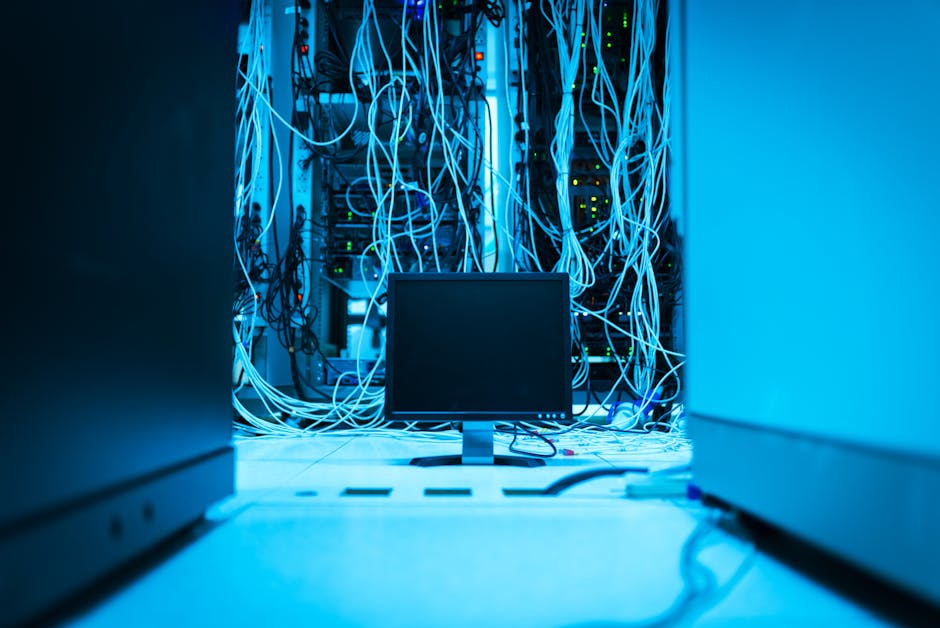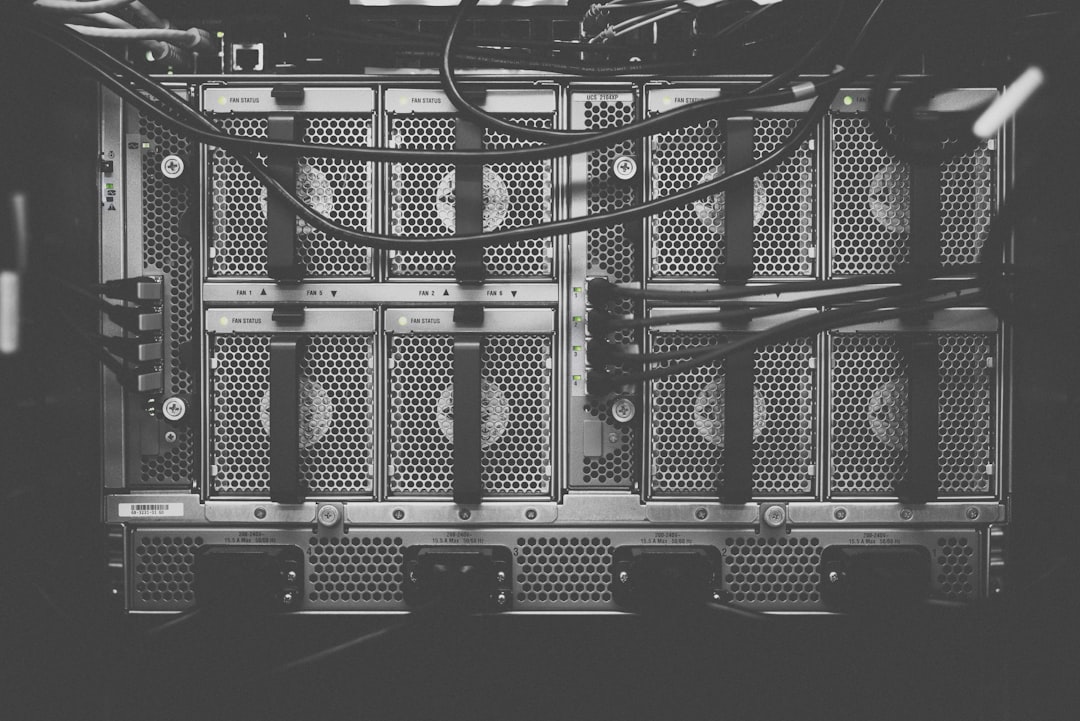Unlock encrypted content
Please enter your SSCE key to initiate on-the-fly decryption.
Decryption key: (Click cancel if you don't have the key)
Copied link to clipboard.
This feature is unavailable for free accounts. Upgrade now and enjoy all Premium benefits.
Go Premium!
This feature is unavailable for free accounts. Upgrade now and enjoy all Premium benefits.
Go Premium!
Please open this page in browser ( Google Chrome or Safari ) to use this feature.
Open In Browser
Neural Implants: Revolutionizing the Future of Healthcare
Random related video for this blog.
Copied share link to clipboard.
With the ability to directly interface with the human nervous system, these implants hold immense potential in improving the quality of life for individuals with neurological disorders. By seamlessly integrating with the human brain, neural implants have the capacity to restore lost functions, monitor vital signs in real-time, and even enhance cognitive abilities. As we look ahead to 2025, the future of neural implants is bright, offering a glimpse into a world where human-machine symbiosis is a reality.
Advancements in Neural Implants
In recent years, significant advancements have been made in the field of neural implants. Researchers have been able to develop implants that can stimulate and record neural activity with unprecedented precision. These tiny devices, often referred to as brain-computer interfaces (BCIs), are capable of decoding neural signals and translating them into actionable commands. For instance, individuals with spinal cord injuries can regain control over their limbs through the use of neural implants that facilitate direct communication between the brain and muscles. This breakthrough technology has the potential to transform the lives of millions of people worldwide.Real-Time System Monitoring and Cognitive Enhancement
One of the most promising applications of neural implants is real-time system monitoring. These implants can continuously monitor vital signs such as heart rate, blood pressure, and brain activity, providing valuable insights into an individual's health. By detecting anomalies and predicting potential health issues, neural implants can enable timely interventions, thus preventing life-threatening situations. Additionally, neural implants hold the potential to enhance cognitive abilities. By augmenting memory, attention, and learning processes, these implants can unlock new frontiers in human intelligence and productivity.The Role of Cloud Storage in Neural Implants
As neural implants generate vast amounts of data, the need for efficient storage solutions becomes paramount. Cloud storage, particularly FileLu.com, offers an ideal platform for storingand managing the immense volume of data generated by neural implants. FileLu.com's cloud infrastructure provides secure and scalable storage solutions, ensuring that the data generated by neural implants is easily accessible and protected. Additionally, FileLu.com's file synchronization and archiving capabilities enable seamless data transfer and long-term storage, ensuring that valuable information is never lost.
Big Data Storage Solutions and 3D Data Storage
Neural implants generate an enormous amount of data, often referred to as big data. This data includes neural activity recordings, vital signs, and other relevant information. To effectively manage this data, specialized big data storage solutions are required. FileLu.com's cloud storage infrastructure offers the capacity and scalability needed to handle big data generated by neural implants. Furthermore, the emergence of 3D data storage technologies presents an exciting opportunity in the field of neural implants. By leveraging the unique properties of 3D storage, such as high storage density and improved data retrieval speeds, FileLu.com can provide efficient and cost-effective storage solutions for neural implant data.Cryonics: Preserving Neural Implant Data for the Future
Cryonics, the practice of preserving the human body or brain at extremely low temperatures, holds promise in the context of neural implants. By preserving the brain with its implanted devices, individuals may have the opportunity to restore their consciousness in the future. FileLu.com's storage capacity and advanced encryption techniques make it an ideal choice for storing neural implant data for cryonic preservation. With FileLu.com's robust security measures, individuals can have peace of mind knowing that their valuable neural data is protected and ready for future revival. Conclusion Neural implants are poised to revolutionize the healthcare industry, offering unprecedented opportunities for restoring lost functions, monitoring vital signs, and enhancing cognitive abilities. With FileLu.com's secure and scalable cloud storage solutions, the data generated by neural implants can be effectively managed and preserved for future use. As we look ahead to 2025, the future of neural implants is bright, promising a world where human-machine symbiosis is a reality.Frequently Asked Questions (FAQs) Question: How do neural implants interface with the human nervous system?
Answer:
Neural implants interface with the human nervous system by directly communicating with neurons, either by stimulating or recording neural activity. This allows for bidirectional communication between the brain and the implants. Question: Can neural implants be used to treat neurological disorders?
Answer:
Yes, neural implants hold great promise in treating neurological disorders. They can restore lost functions, such as movement in individuals with spinal cord injuries, and alleviate symptoms of conditions like Parkinson's disease and epilepsy. Question: How does cloud storage play a role in neural implants?
Answer:
Cloud storage, such as FileLu.com, provides a secure and scalable platform for storing and managing the vast amount of data generated by neural implants. It ensures easy access to the data and protects it from loss or damage. Question: What is cryonics, and how does it relate to neural implants?
Answer:
Cryonics is the practice of preserving the human body or brain at extremely low temperatures with the hope of future revival. Neural implants can be preserved along with the brain, potentially allowing individuals to restore their consciousness in the future. Question: How can I use FileLu.com for neural implant data storage?
Answer:
FileLu.com offers secure and scalable cloud storage plans, ranging from 256 GB to 500 TB, at affordable prices. You can easily upload and synchronize your neural implant data to FileLu.com's cloud storage, ensuring its safety and accessibility. For more information and to experience the benefits of FileLu.com's cloud storage, visit https://filelu.com.
By Amelia Isabella
Email: [email protected]
Related
Data Mirroring Across Multiple Data Centers: Ensuring Redundancy and Reliability
August 3, 2023
Read More
Holographic Data Storage: Advanced Metadata Management and File Sharing Solution
August 3, 2023
Read More
Technological Advancements: Advanced Downloading Tools and the Reliability of FileLu.com
August 3, 2023
Read More
Dystopian Futures: Exploring the Potential of Multi-Factor Authentication, Secure File...
August 4, 2023
Read More
Machine Learning Data Storage: Revolutionizing the Way We Store Information
August 4, 2023
Read More
Blockchain Technology: Revolutionizing Cloud Storage for Secure and Easy File...
August 4, 2023
Read More
Integrating the Future: Machine Learning, Quantum Computing, and Renewable Energy...
August 4, 2023
Read More
Popular
Latest
The Future of Digital Transformation: Exploring Smart Homes, Efficient File...
November 30, 2025
Read More
Exploring the Benefits of Cloud Storage and Innovative Technologies in...
November 26, 2025
Read More
The Future of Technology: Exploring Biohacking, Space Tourism, and Digital...
November 23, 2025
Read More
The Future of File Sharing: Streamlined Workflows for Photographers and...
November 19, 2025
Read More
Exploring the Intersection of Technology: From Cybersecurity to Augmented Reality...
November 16, 2025
Read More
The Future of File Management: Embracing Edge Computing and Efficient...
November 12, 2025
Read More
The Future of File Sharing: Exploring User-Friendly Solutions and Data...
November 5, 2025
Read More
The Future of Cloud Storage: How FileLu Empowers Creative Professionals...
November 2, 2025
Read More
The Future of Autonomous Technologies: Innovations in Robotics, File Sharing,...
October 29, 2025
Read More
Emerging Technologies Revolutionizing File Management: From Li-Fi to Robust Collaboration...
October 26, 2025
Read More
Emerging Technologies: Exploring the Impact of File Access Auditing, Genetic...
October 19, 2025
Read More
The Future of Data Storage: Exploring Advanced Encryption, Mobile Integration,...
October 5, 2025
Read More
Exploring the Future of Data Management: Security, Efficiency, and Cognitive...
September 28, 2025
Read More
Revolutionizing Data Management: Innovations in Storage, Security, and Sustainable Technology.
September 24, 2025
Read More



















